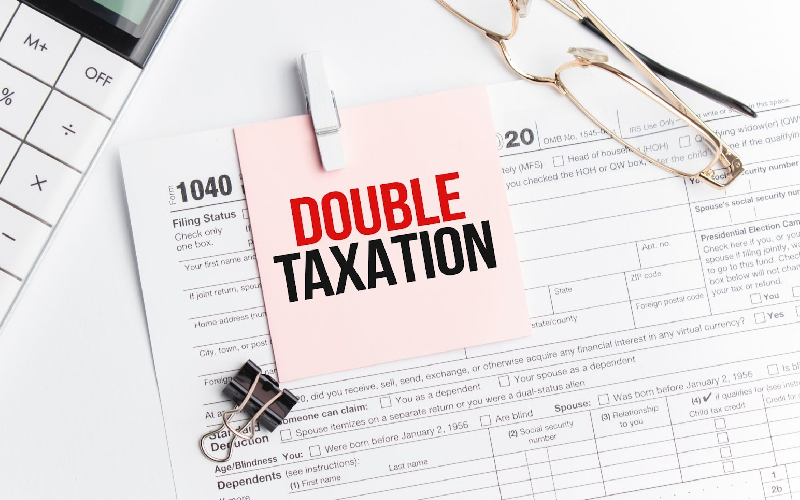Leaving Switzerland and Pension Concerns: The Fundamentals

Might you be leaving Switzerland permanently? While this region is attractive for many reasons, perhaps you are required to relocate for professional reasons. There can be other instances when you simply wish to enjoy exotic regions of the world. Either way, a handful of concerns will need to be addressed.
One issue involves your existing pension plan. What will happen to your pension if you leave Switzerland? Can certain pillars be accessed, and if so, are there any finer points to appreciate? Let us examine each of these questions so that you can make informed decisions.
Leaving Switzerland and Pension Issues: What are the Basics?
First, it is important to appreciate that many Swiss citizens have chosen to emigrate abroad. In fact, it is estimated that 11 per cent of the entire population resides outside of the country (1). All of these individuals have likewise expressed concerns over the fate of their pension plans. The good news is that you have several options.
These often depend on whether you relocate to an EU member state or a non-EU nation. Each scenario will require slightly different strategies. Let us now examine both in more detail.
What Do You Need to Know About Leaving Switzerland and Pensions in the EU?

Let us assume that you plan to relocate to a European Union country. You have the following options:
You have immediate access to the so called extramandatory part. The mandatory part (LPP) is only available under these conditions:
- when turning 60 (59 for women)
- for the financing of a home, or downpayment of an existing mortgage
There is still one point to mention. Any 2. Pillar contributions should be redistributed to a foundation for vested benefits with domicile in a canton with low taxes. These funds will remain in an escrow account until you turn 60. If needed, this money can then be accessed. Examples may involve purchasing a property or downpayment of an existing mortgage.
However, there are interesting options to invest the assets with low cost investment solutions.
Relocating to a Country Outside of the European Union
What if you will instead be living in a non-EU nation? In this case, you can choose to liquidate your pension funds or vested benefits after your depart. However, this is not mandatory. Note that you will also have to address a capital withholding tax. Again, you have many attractive investment options.
It is important to clarify one key point in regard to tax rates. These rates are associated with the domicile of the foundation for vested benefits, and not by your personal domicile.
Again: You should choose a foundation for vested benefits with domicile in a canton with low taxes.
Countries with Double Taxation Agreements

Pension concerns when leaving Switzerland may also center around double taxation treaties. More than 80 nations fall into this category, and here are some examples:
- France
- Greece
- Spain
- China
- Thailand
- Venezuela
If you are relocating to any of these regions, it will be possible to reclaim the withdrawal tax. You still need to present legal proof of your updated tax residence. Keep in mind that domestic income taxes associated with your new residence may apply.
Payouts Versus Maintaining Coverage
Let us assume that you wish to cash out your benefits. If you are married, you will need to obtain notarized permission from your spouse. Those who are single must provide proof of their unmarried status. Cashing out normally occurs after departing Switzerland. Furthermore, buy-ins that occurred within the past three years will be transferred to a vested benefit account: Important: The total of your assets, (not only the part of the voluntary buy-in) will be blocked for 3 years since your last contribution.
As this article highlights, you may instead choose to leave your Swiss pension intact. There are three ways in which you can maintain this coverage:
- Establish a vested benefits package with a Swiss life insurance firm.
- Open up a benefits account with a vested benefit Foundation recognised in Switzerland.
- Register with the Substitute Occupational Benefits Institution.
In any of these cases, it is wise to speak with Marcel Chevrolet to better appreciate your options. (Insurance policies are mostly too expensive)
Final Thoughts
Understanding your pension options when leaving Switzerland is critical to avoid potential mistakes. Once you have chosen a specific withdrawal option, this decision cannot be reversed. Therefore, it pays to think ahead.
Furthermore, it might be possible to enjoy tax savings of up to 50% when working with a professional. Chevrolet Consulting GmbH is always here to help. Would you like to obtain expert advice? If so, please schedule a free consultation. More than 300 satisfied clients can attest to the fact that I have the answers to your questions.



